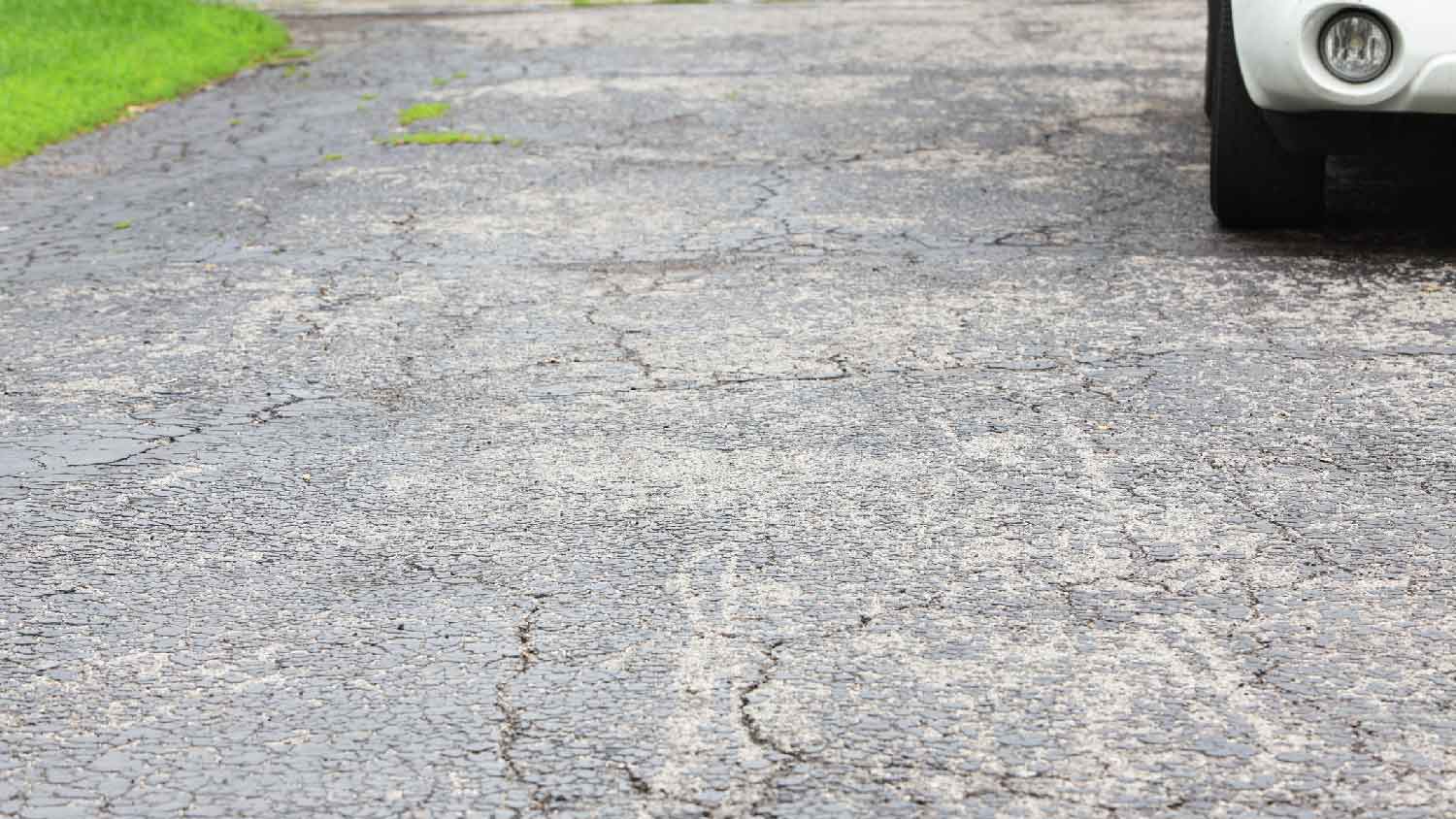
When designing a driveway, it's crucial to know the cost of your driveway apron—the transitional ramp that connects you to the road. Here's what to know.
Crack the asphalt code


Asphalt cracks are more than just unsightly—they can be hazardous and lead to further damage. While asphalt is a durable material, time and wear can cause even the best-installed surfaces to crack. Understanding the different types of cracks, how they form, and, most importantly, their causes can help you determine the best path to repair.
| Type of Crack | Cause | Solution |
|---|---|---|
| Edge | Underlying material settling; tree roots; improper drainage | Seal cracks, remove nearby plants, improve drainage |
| Reflection | New asphalt installed over existing, cracked asphalt | Full replacement |
| Slippage | Poor bonding; inadequate asphalt mix | Full-depth patching to the asphalt; sometimes, replacement is necessary |
| Fatigue | Heavy loads and inadequate asphalt | Full replacement with more durable asphalt |
| Transverse | Low-temperature thermal cracking or an asphalt grade unsuitable for the climate | Small cracks can be sealed, larger cracks will require full replacement |
| Block | Lack of moisture or extreme hot-cold temperature cycles | Small cracks can be sealed, larger cracks will require full replacement |
Edge cracks on asphalt are longitudinal and located near the edges of the pavement. They are caused by the underlying material “settling,” by soil drying, or a lack of lateral support. Trees and shrubs planted nearby can trigger these issues, with the roots lifting the edges of the asphalt. Improper drainage is another possible factor.
Reflection cracks occur when an asphalt overlay is improperly installed over existing cracked or jointed pavement. The movement of the underlying pavement causes cracks to reflect up to the surface layer. When reflection cracks occur, it’s best to tear up and replace the asphalt—this requires help from a local asphalt repair company.
Slippage cracks are crescent-shaped. There are several potential causes for slippage cracks: water or dirt between layers; poor bonding between the surface layer and underlying material; or an inadequate asphalt mix.
Sometimes known as “alligator cracking,” these cracks resemble the skin pattern of an alligator or crocodile. Alligator cracks occur because of repetitive heavy loads and asphalt layers that are too thin to accommodate the weight. Usually, you will need to tear out the old, thin asphalt and replace it with thicker, sturdier layers. If you are in need of a full replacement, note that the cost to install an asphalt driveway averages $5,248.

Transverse cracks run roughly perpendicular to the centerline of the pavement. These cracks can be caused by low-temperature thermal cracking or a hard asphalt grade unsuitable for the climate you live in. While transverse cracks are not often due to heavy loads, pressure and weight can exacerbate them.
If you notice giant rectangles or squares in your pavement, you have block cracks. These cracks can occur from a lack of moisture or extreme hot-cold temperature cycles, which causes the asphalt binder to contract or expand too slowly or quickly. If the cracks are small, they can usually be sealed; more severe block cracking will require overlay replacement.
From average costs to expert advice, get all the answers you need to get your job done.

When designing a driveway, it's crucial to know the cost of your driveway apron—the transitional ramp that connects you to the road. Here's what to know.

The cost of a gravel driveway depends largely on its size, depth, and the gravel type you use. Keep reading to budget for your new driveway.

Use our guide to calculate the cost to seal an asphalt driveway. Prices vary based on the type of sealant and the size of the driveway.

Asphalt is the best driveway material for cold weather, but there are times when other materials may be a better fit. Get the details in this article.

You know you need a bigger driveway, but what kind of extension should you add? Check out these driveway extension ideas to plan your new parking space.

Adding a new asphalt driveway to your home can boost its overall appearance and give homeowners a nice ROI down the line. But how long do asphalt driveways last, and what can you do to maximize their lifespans? Read this guide to find out.